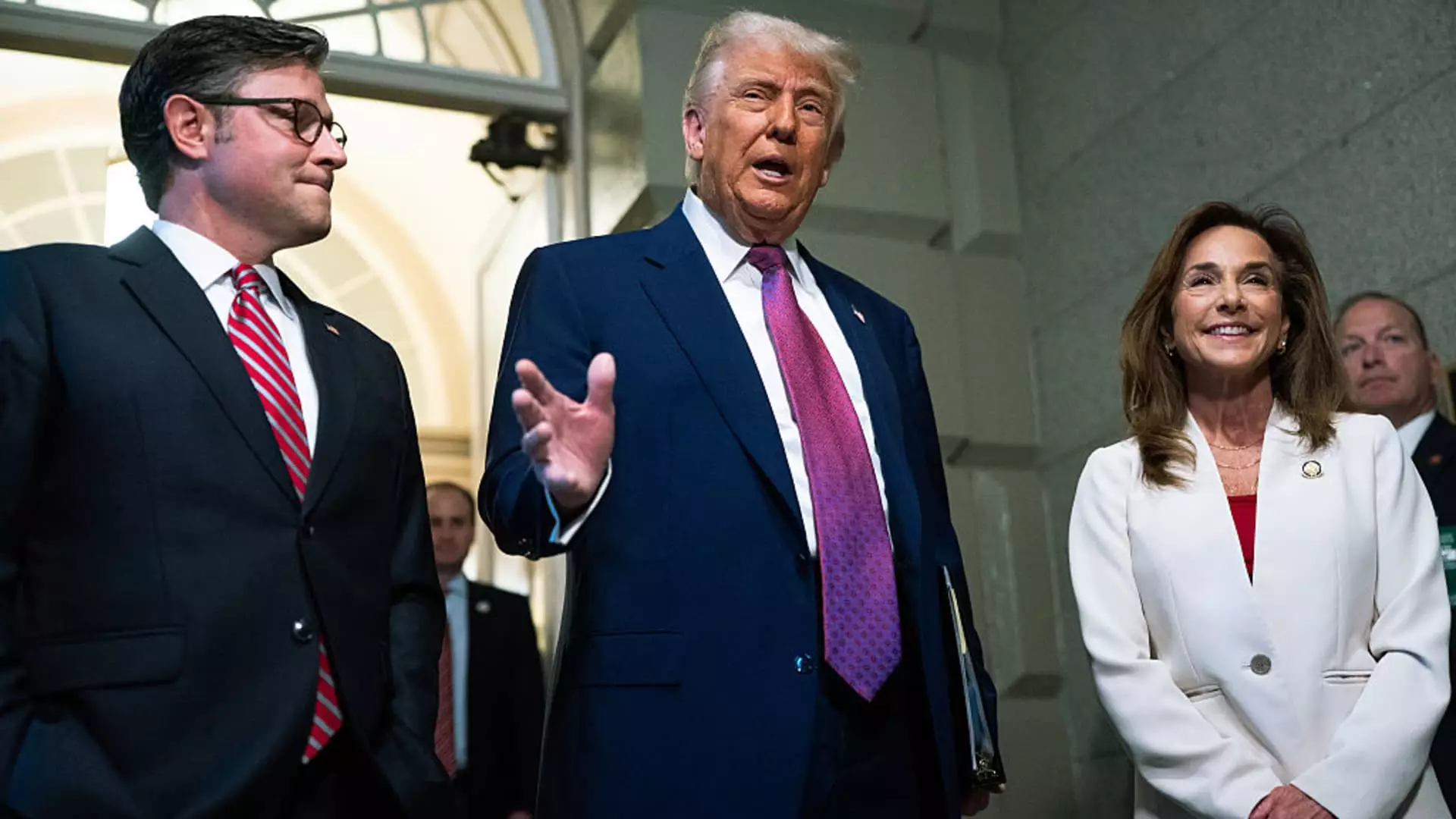In a fervent display of political maneuvering, the U.S. House of Representatives narrowly passed President Trump’s much-hyped tax bill, drawing a stark line of division between Republicans and Democrats. Such a near-squeezed vote, ending at 215-214, is not merely a reflection of partisan conflict, but an indication of the ongoing ideological fragmentation within the Republican Party itself. Two Republican representatives, Warren Davidson and Thomas Massie, opted out of line with their colleagues, casting a shadow over the so-called unity that the party desires to present. Furthermore, even members of the House Freedom Caucus expressed hesitance as Rep. Andy Harris merely voted present, spotlighting the internal discord.
The intricate 1,000-page piece of legislation, laden with amendments, was described as a lifeline for both moderates and hardline conservatives, showcasing a complex balancing act that is emblematic of the current political climate. The enormous efforts of the House Rules Committee—21 hours of deliberations—might impress some, but the question arises: at what cost did this legislative gymnastics come? While Speaker Mike Johnson shines a spotlight on the tactical victory achieved, the underlying complexities point to a system that often struggles under the weight of its self-imposed deadlines.
The Dangers of Budget Reconciliation
As the bill transitions to the Senate, nestled under the safety of budget reconciliation—a legislative shortcut that requires just a simple majority for passage—one can’t help but feel a sense of dread. Yes, it allows for swifter action, which is a fine objective in theory, yet the ramifications could lead to a reckoning that Americans must face sooner rather than later. The specter of rising federal deficits looms large, whispered about in hushed tones by even some senators as they contemplate the radical shifts proposed within this legislation.
The amendments passed within the House were designed with a dual purpose: placate conservatives while offering concessions to centrists. This is a precarious tight rope, often leading to compromises that dilute the original intentions of a bill. For instance, the amendment to expedite work requirements for Medicaid recipients is a win for conservatives, doubly so when considered alongside a substantial increase in the SALT deduction cap, originally a thorn in the side for moderates. This contrast has resulted in an elaborate deal that exemplifies the unnecessary complexities in America’s tax structure.
Pros and Cons for the Middle Class
Supporters of the bill, like Mike Lawler, assert that it’s a vital move to revitalize the economy, invoking an allure of certainty as a cornerstone for future growth. His claims present an optimism that appears attractive on the surface: lower taxes will stimulate investment. However, the reality, as revealed by the nonpartisan Congressional Budget Office, indicates a disturbing reality — the bill could siphon resources from the lowest-income households while significantly benefiting the wealthiest decile. This would constitute a fundamental shift in the American economic landscape, skewing it further towards the affluent.
It is essential for Americans to critically reflect on whom this proposed taxation system truly serves. It is one thing for lawmakers to tout benefits that are meant to stimulate the economy, but changing lives for the better shouldn’t translate into financial burdens on those who are already struggling. Policies that prioritize short-term growth at the expense of long-term fiscal health often leave the most vulnerable in precarious positions.
Looking Forward: The Senate’s Role
While the pathway through the Senate is set, it’s marred with pitfalls as several Republican senators have already voiced that drastic changes are necessary before they will lend their support. The tone has shifted from enthusiasm to caution, signifying an acknowledgment that their far-right colleagues might push the legislation off the edge into a sea of discontent. Even as Johnson urges the Senate to expedite the legislation by July 4, an air of skepticism looms.
In a society that claims to champion free markets and equality, it’s imperative to question the ultimate impacts of such tax legislation. As conservatives and moderates jockey for positioning within their party framework, the American people deserve transparent dialogue about these critical matters that ultimately dictate financial stability for generations to come. The paradox of wanting “more for less” could very well define whether this tax overhaul is a bold step forward or a reckless gamble that risks the intricate balance of our economy.

Leave a Reply